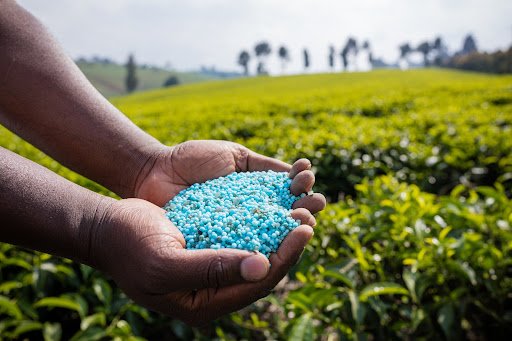
When and How to Apply Soltellus for Maximum Crop Impact
Crop Versatility with Soltellus™ Polymer
April 1, 2025
4 minutes
Agronomy
By Sierra Cotton
Download Free Agronomy GuideFarmers know that timing is everything. Whether you’re chasing optimal yields, managing unpredictable weather, or adapting to evolving soil conditions, your inputs must work when and how you need them to. At Lygos, we developed Soltellus™, a biodegradable polyaspartate polymer, to offer exactly that: versatility in both application timing and method, without compromising performance.
Unlike many soil enhancers or chelating agents on the market, Soltellus™ isn’t limited to one crop type, one application window, or one method of use. It’s designed to fit seamlessly into a grower’s existing crop operation and adjusts to their schedule, conditions, and crop strategy.
Corn: Application Timing from Planting to R3
Across more than 20 replicated trials, Soltellus delivered a 7.1 bu/A average yield increase and a 90% win rate when compared to untreated programs.
When to Apply
- From planting through R1
- Most impactful in-season (V1–V6) via foliar, Y-drop, overhead irrigation, or side-dress
How to Apply
- In-furrow at planting for early root zone nutrient capture
- Side-dress or Y-drop around V6–V12 to coincide with rapid nutrient uptake
- Broadcast on dry fertilizer or blended into liquid fertilizer
- Through irrigation or as a foliar additive
Performance Highlight
In one trial, dual applications of Soltellus (in-furrow + Y-drop at V10) drove 30% more nitrogen, 18% more phosphorus, and 27% more potassium absorbed into corn leaf tissues than untreated crops. This was counter to the normal senescence seen in plant tissues toward the end of the season.
Add in Soltellus’s water retention benefits and microbial stimulation, and it becomes a key ally in both early development and rapid vegetative growth.
Soybeans: Application Timing from Planting to Early Reproduction
Soybeans are known for their nutrient sensitivity, especially during pod fill. Soltellus gives farmers the flexibility to apply at planting or mid-season to address nutrient uptake challenges and improve consistency.
When to Apply
- Anytime from planting through R1 (beginning bloom)
How to Apply
- In-furrow at planting or 2x2
- Foliar or irrigation applications during reproductive stages
- Broadcast with fertilizer
Performance Highlight
In a Missouri grower trial, Soltellus applied during pod fill via pivot irrigation increased yields by 10 bu/A and visibly improved uniformity across the field.
Cotton: Application Timing from Rooting to Bloom
Cotton growers face a narrow window to establish strong plant structure and boll production. Soltellus can be added from early rooting stages through bloom to support nutrient transport and microbial symbiosis in the root zone.
When to Apply
- From planting through early bloom
How to Apply
- In-furrow at planting to jumpstart microbial activity
- Irrigation mid-season to enhance nutrient uptake during boll formation
Performance Highlight
In a 2024 Kansas trial, a single application at mid-bloom increased total boll production by 34%, with significant gains across all boll positions (especially positions 1 and 2), which are most critical to lint yield.
Wheat: Application Timing from Planting to First Flag
Timing flexibility in wheat is crucial due to its sensitivity to early-season stress and rapid reproductive transitions. Soltellus supports nutrient efficiency and soil microbe performance, even in tighter windows.
When to Apply
- From planting through the first flag leaf stage
How to Apply
- In-furrow or 2x2 at seeding
- Broadcast with MAP or other dry fertilizer
- Foliar application with micronutrients
This flexibility allows growers to fine-tune their input strategy around unpredictable spring conditions while still supporting early vegetative and reproductive growth stages.
Potatoes and Specialty Crops: High-Value Yield Boosts
Though still emerging in specialty crop trials, Soltellus has already proven valuable in potatoes. In Idaho trials, potatoes treated with Soltellus on MAP yielded 810 lb/A more marketable weight and 530 lb/A more U.S. No. 1 grade potatoes compared to untreated MAP.
Applications on potatoes and other high-value crops are especially useful for:
- Boosting marketable yield
- Improving grade quality
- Enhancing irrigation uniformity and nutrient access in compact soils
Method Flexibility: One Product, Many Options
Soltellus’s water-soluble, biodegradable formula makes it compatible with almost any fertilizer or irrigation system. Here are just a few ways growers are using it:
Application Method: Compatible With
In-furrow: Starter fertilizer blends
2x2 or 2x2x2 placement: Liquid fertilizers, biologicals, other soil amendments
Side-dress/In-season: Micronutrients, biologicals, fungicides, herbicides, other agrochemicals
Broadcast: MAP, Urea, or dry blends
Foliar: Micronutrients, crop protection products
Fertigation/Irrigation: Pivot systems, drip lines, surface'
Why Versatility = Profitability
Boasting up to a 10% yield increase and 2–6X ROI observed in multiple trials, Soltellus is more than a soil enhancer. Its ability to be applied when and how growers need it makes it a smart investment in performance, soil health, and environmental stewardship.
Ready to Make the Switch?
Soltellus is available through Lygos’s agronomy dealer network. Visit lygos.com/markets/agronomy to find a distributor near you, or contact info@lygos.com for support on integrating Soltellus into your current crop program.